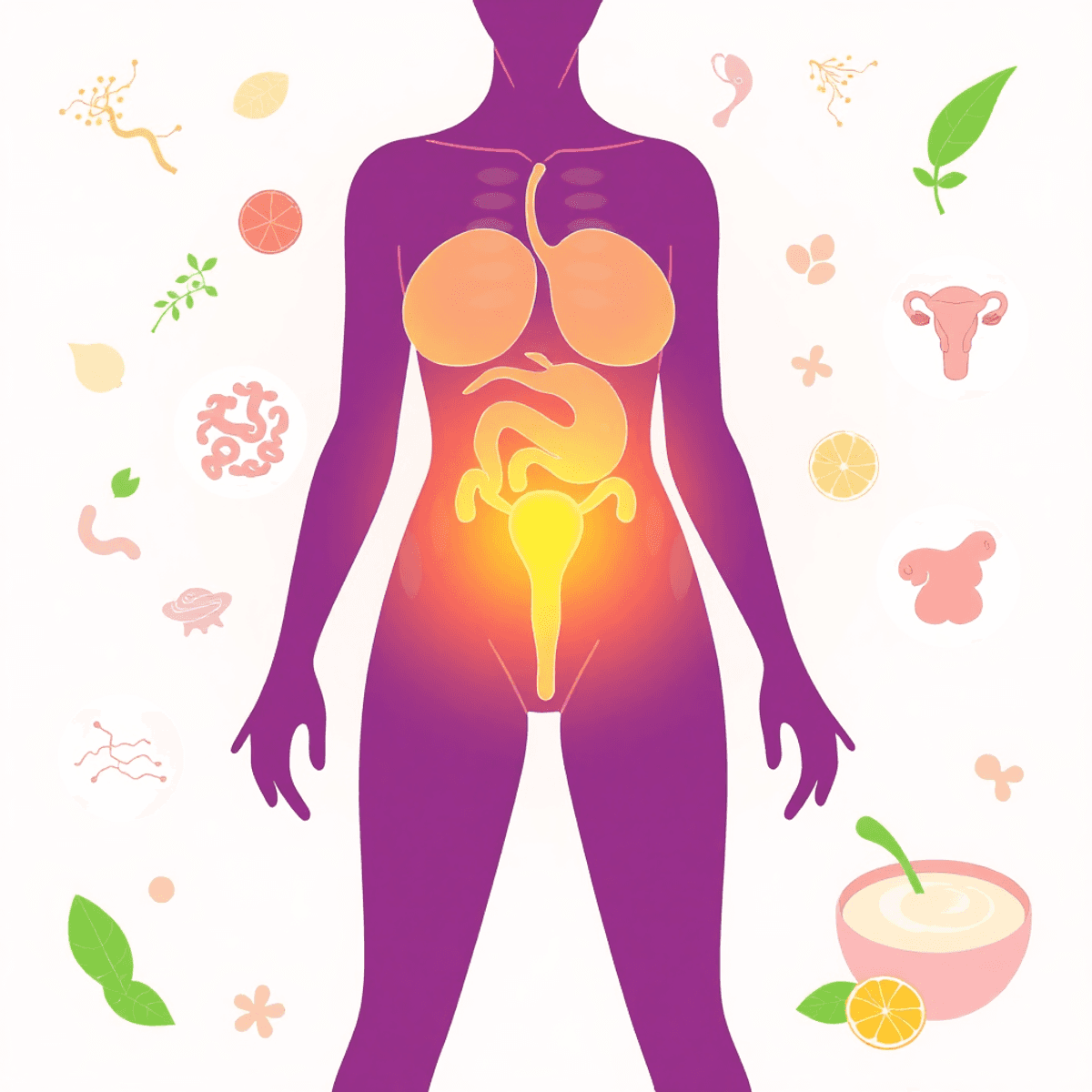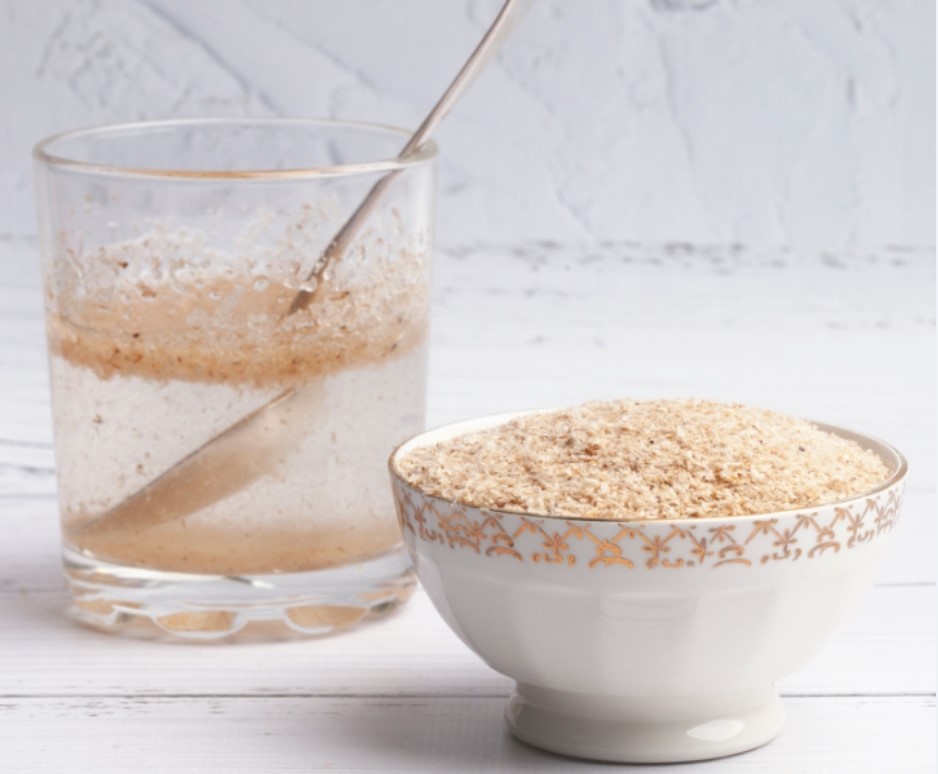Probiotics are more than just good for your digestion. They offer specific benefits that cater to women’s unique biological needs, promoting both gut and reproductive health.
Your body is home to trillions of microorganisms working together to keep you healthy. Probiotics play a crucial role in supporting not only your digestive system but also your vaginal microbiome—the community of bacteria in your vagina. This connection between gut and vaginal health is vital for women’s well-being and deserves your attention.
How Probiotics Work
Probiotics have an incredible ability to:
- Restore balance to the microbes in your digestive tract
- Promote healthy vaginal flora dominated by protective Lactobacillus species
- Strengthen your immune system’s natural defenses
- Help prevent common gynecological infections
Understanding how probiotics function within your body’s complex ecosystem empowers you to make informed decisions about your health. The link between gut and vaginal health isn’t just theoretical—it’s a scientifically-backed pathway to improved wellness that you can actively support through targeted probiotic use.
The Broader Benefits of Probiotics
Probiotics offer advantages beyond just gut and vaginal health. For example, they can contribute to boosting immunity during seasonal changes, which is crucial for overall well-being. This is especially important for women who often encounter specific health challenges that can be addressed with proper dietary choices and lifestyle modifications.
Furthermore, grasping the connection between weight management and gut health can provide additional insights into achieving optimal wellness. Probiotics can assist in maintaining a healthy weight by restoring equilibrium in your digestive system—a key component of effective weight loss strategies.
Incorporating probiotics into your daily routine could bring significant benefits not only for your gut and vaginal health but also for your overall immunity and weight management efforts.
Understanding Probiotics and Their Functions
Probiotics are living microorganisms that provide health benefits when consumed in adequate amounts. These beneficial bacteria support various bodily functions by forming colonies in your body. You can find these powerful microorganisms naturally in fermented foods like yogurt, kefir, and sauerkraut, or through specially formulated supplements designed to deliver specific strains.
The Role of Probiotics in Gut Health
The gut microbiome is a complex ecosystem containing trillions of microorganisms that influence your digestive health, immune function, and even mood regulation. When you introduce probiotics into this environment, they help maintain a balance between beneficial and potentially harmful bacteria. These microorganisms produce essential compounds like short-chain fatty acids, which nourish your intestinal lining and create an environment where harmful bacteria struggle to survive.
How Probiotics Support Your Gut Microbiome
Probiotics support your gut microbiome through several mechanisms:
- Competitive exclusion – occupying space and resources that harmful bacteria need
- pH regulation – producing lactic acid to create an acidic environment
- Antimicrobial compound production – generating substances that inhibit pathogen growth
- Immune system modulation – enhancing your body’s natural defense responses
The Unique Benefits of Probiotics for Women
For women specifically, probiotics offer advantages beyond digestive support. They improve nutrient absorption during crucial times such as menstruation, pregnancy, and menopause when nutritional needs fluctuate. Additionally, these beneficial bacteria help regulate inflammation throughout the body, potentially reducing symptoms associated with hormonal changes. The connection between gut health and hormonal balance means that maintaining a robust probiotic population can influence everything from energy levels to skin clarity.
Probiotics and Weight Management
Incorporating probiotics into a weight management strategy can also be beneficial. For instance, Phentermine and Ozempic are two medications often compared for their effectiveness in weight management. Probiotics can enhance the effectiveness of such medications by improving gut health.
Moreover, understanding practices like the 96-hour fast, which can enhance gut health and boost weight loss effectively when done safely, can further complement your health journey.
Probiotics for Chronic Condition Management
For individuals managing chronic conditions such as diabetes, incorporating healthy snacks into your diet while maintaining a balanced gut microbiome through probiotics can significantly improve overall health.
Exploring Innovative Treatments
As we explore more about enhancing our well-being, we come across innovative treatments like NAD+ injections. Knowing the ideal NAD+ injection dosage can help maximize benefits for anti-aging and cognitive enhancement while minimizing risks.
Unique Dietary Options for Wellness
In addition to these practices, exploring unique dietary options such as butterfly milk, known for its numerous health benefits including antioxidants and eye health improvement, could also be a worthwhile consideration on your wellness journey.
The Gut-Vaginal Microbiome Axis in Women
Your body houses interconnected microbial communities that communicate and influence each other in remarkable ways. The gut-vaginal microbiome axis represents a fascinating biological highway where bacteria from your intestinal tract can migrate to your reproductive system, directly impacting your vaginal health.
This microbial migration occurs through several pathways. Bacteria can travel from your gut to your vagina via the perineal route, especially during bowel movements or through lymphatic and blood circulation. The proximity of these anatomical regions creates a natural corridor for bacterial exchange, making your gut health a critical factor in maintaining vaginal wellness.
Lactobacillus: The Guardian of Vaginal Health
Lactobacillus species dominate a healthy vaginal microbiome, typically comprising 70-95% of the bacterial population. These beneficial bacteria function as your body’s natural defense system by:
- Producing lactic acid to maintain an acidic pH (3.8-4.5)
- Creating hydrogen peroxide that inhibits harmful pathogens
- Generating bacteriocins – natural antimicrobial compounds
- Competing with pathogenic bacteria for nutrients and adhesion sites
The most prevalent strains include L. crispatus, L. gasseri, L. iners, and L. jensenii, each contributing unique protective properties to your vaginal environment.
The Critical Balance for Reproductive Wellness
Microbial balance serves as the foundation of reproductive health. When your gut microbiome becomes disrupted through antibiotics, stress, or poor diet, this imbalance can cascade to your vaginal microbiome. Reduced Lactobacillus populations create opportunities for harmful bacteria like Gardnerella vaginalis or Prevotella species to flourish, potentially leading to bacterial vaginosis, increased infection susceptibility, and compromised immune responses in your reproductive tract.
Maintaining this balance requires not just awareness but also proactive measures such as adopting a balanced diet and ensuring proper hydration which plays an important role in overall health and wellness including gut health. Stress management is also crucial as it can disrupt both gut and vaginal microbiomes. Exploring mental health resources could be beneficial for those struggling with stress-related issues.
Furthermore, positive experiences during childhood have been linked to better health outcomes later in life, including heart health which indirectly affects overall wellness (source).
Probiotics: A Natural Way to Support Vaginal Health
Probiotic therapy offers women a gentle yet effective method to restore and maintain optimal vaginal flora balance. When the delicate ecosystem of beneficial bacteria becomes disrupted, targeted probiotic interventions can help reestablish the protective Lactobacillus-dominant environment that characterizes healthy vaginal microbiota.
Restoring Vaginal Flora Balance
You can leverage probiotics to replenish depleted Lactobacillus populations that may have been compromised by antibiotics, hormonal changes, or lifestyle factors. These beneficial microorganisms work by:
- Producing lactic acid to maintain the acidic pH (3.8-4.5) necessary for vaginal health
- Secreting antimicrobial compounds like bacteriocins and hydrogen peroxide
- Competing with pathogenic bacteria for nutrients and adhesion sites
- Strengthening the vaginal epithelial barrier against harmful invaders
Prevention and Treatment of Bacterial Vaginosis
Bacterial vaginosis represents one of the most common vaginal infections, affecting up to 30% of women of reproductive age. Clinical studies demonstrate that probiotic supplementation can significantly reduce BV recurrence rates when used alongside conventional antibiotic treatments. Specific Lactobacillus strains help restore the natural balance by outcompeting harmful bacteria like Gardnerella vaginalis and anaerobic species that contribute to BV development.
Managing Yeast Infections and UTIs
Yeast infections and urinary tract infections respond well to probiotic intervention strategies. For yeast infections, probiotics help maintain the acidic environment that inhibits Candida overgrowth while supporting your body’s natural antifungal defenses. Regarding UTIs, certain probiotic strains prevent pathogenic bacteria from adhering to urogenital tract surfaces, reducing infection risk by up to 50% in some studies.
The strategic use of probiotics creates a sustainable approach to vaginal health maintenance that works with your body’s natural protective mechanisms rather than against them.
Key Probiotic Strains Beneficial for Women’s Health
When choosing probiotics for women’s health, knowing the specific strains is crucial. Four main Lactobacillus species are essential for vaginal health: Lactobacillus crispatus, L. gasseri, L. iners, and L. jensenii. Each strain has its own way of protecting and maintaining the balance of your vaginal environment.
1. Lactobacillus crispatus
This strain is the most dominant protector in healthy women. It produces high amounts of lactic acid, creating an acidic environment that harmful bacteria cannot survive in. L. crispatus is particularly effective at producing hydrogen peroxide, a natural compound that actively fights off pathogens.
2. L. gasseri
L. gasseri is skilled at sticking to vaginal epithelial cells, forming a barrier against invading microorganisms. This strain remains stable during hormonal changes and produces bacteriocins – natural antibiotics that specifically target harmful bacteria while leaving beneficial microbes unharmed.
3. L. iners
L. iners adapts very well to changing vaginal conditions, but it requires careful balance. While this strain is present in healthy vaginas, it can sometimes indicate transitional states in your microbiome. Research shows that L. iners can have both protective and neutral effects.
4. L. jensenii
L. jensenii helps maintain optimal pH levels by consistently producing lactic acid. This strain works together with other Lactobacillus species to create a strong defense system against bacterial vaginosis and yeast overgrowth.
These four strains work together to produce essential compounds including:
- Lactic acid for pH maintenance
- Hydrogen peroxide for antimicrobial protection
- Bacteriocins for targeted pathogen elimination
- Biosurfactants for enhanced protective barrier function
The combined action of these strains creates an ecosystem that regulates itself and adapts to your body’s changing needs throughout different life stages.
In addition to these specific strains, it’s also important to consider the overall diversity of your gut microbiota when selecting probiotics for women’s health. A study published in Nature indicates that a diverse microbiome can lead to better health outcomes, including improved metabolic function and enhanced immune response.
Moreover, research from the National Institutes of Health highlights the role of probiotics in promoting gut health, which can indirectly benefit vaginal health as well by helping to maintain a balanced microbiome throughout the body.
Probiotics’ Role in Immune Support and Potential Cancer Prevention
Probiotics are beneficial bacteria that can help strengthen women’s immune function in several ways. They can stimulate the production of antibodies, enhance the activity of certain immune cells, and improve the body’s overall defense against pathogens.
How Probiotics Support Immune Function
Here are some ways in which probiotics support immune function:
- Increased Antibody Production: Probiotics can stimulate the production of immunoglobulins, which are antibodies that play a crucial role in fighting off infections.
- Enhanced Macrophage Activity: Macrophages are immune cells that engulf and destroy pathogens. Probiotics have been shown to enhance the activity of macrophages, making them more effective at eliminating harmful microorganisms.
- Cytokine Production: Probiotic supplementation has been found to increase the production of certain cytokines, such as interleukin-12 and interferon-gamma. These molecules coordinate immune responses and help regulate various aspects of the immune system.
- Activation of Natural Killer Cells: Specific strains of probiotics, particularly Lactobacillus species, have been shown to activate natural killer (NK) cells. These immune cells are responsible for identifying and destroying abnormal cells, including cancerous ones.
Probiotics and Cervical Cancer Prevention
The connection between probiotics and cervical cancer prevention lies in their ability to combat human papillomavirus (HPV) infections. HPV is the primary risk factor for cervical cancer development, and probiotics offer a natural defense mechanism against this virus.
How Probiotics May Help with HPV Infections
Here’s how probiotics may help with HPV infections:
- Antimicrobial Activity: Lactobacillus strains, a type of probiotic, produce antimicrobial compounds that create an environment unfavorable for HPV persistence. This means that the virus may have a harder time surviving and replicating in the presence of these beneficial bacteria.
- Reduced Viral Load: By creating an inhospitable environment for HPV, probiotics have the potential to reduce viral load in infected individuals. Lowering the amount of virus present in the body may decrease the risk of developing precancerous lesions or cervical cancer.
- Enhanced Immune Response: Probiotics can modulate local immune responses in cervical tissue, promoting the production of protective antibodies and enhancing cellular immunity. This means that the body’s immune system becomes more adept at recognizing and eliminating HPV-infected cells.
Clinical Studies on Probiotics and Cervical Health
Several clinical studies have investigated the effects of probiotics on cervical health outcomes:
- High-Risk HPV Persistence: Women with higher concentrations of beneficial Lactobacillus species have been found to have lower rates of high-risk HPV persistence compared to those with lower levels.
- Cervical Inflammation Markers: Certain markers indicating inflammation in the cervix were found to be reduced in women who consumed probiotics regularly.
- Clearance of Abnormal Cervical Cells: Some studies showed that women who took probiotics experienced enhanced clearance of abnormal cervical cells detected during Pap smears.
- Response to HPV Vaccination: Preliminary findings suggest that probiotics may improve the effectiveness of HPV vaccination by boosting immune responses
Practical Considerations for Using Probiotics for Women’s Health Benefits
Probiotic supplementation comes in various forms, each offering unique advantages for women seeking to optimize their gut and vaginal health. Understanding these options helps you make informed decisions about incorporating probiotics into your wellness routine.
Available Forms of Probiotic Products
Capsules and tablets represent the most convenient option for targeted probiotic delivery. These supplements typically contain concentrated amounts of specific strains, making it easier to achieve therapeutic dosages. Many formulations designed for women include enteric coatings that protect beneficial bacteria from stomach acid.
Fermented foods provide a natural approach to probiotic consumption. Yogurt with live cultures, kefir, kimchi, and sauerkraut offer diverse bacterial strains alongside beneficial nutrients. These foods support The Role of Probiotics in Women’s Gut Health by delivering probiotics in their natural matrix.
Vaginal suppositories allow direct application to the target area, bypassing the digestive system entirely. This delivery method proves particularly effective for addressing localized vaginal health concerns.
Recommended Strains and Dosages
For women’s health support, specific Lactobacillus strains show the most promise:
- Lactobacillus crispatus: 1-10 billion CFU daily for vaginal health maintenance
- Lactobacillus rhamnosus GR-1: 1-10 billion CFU daily, often combined with L. reuteri RC-14
- Lactobacillus gasseri: 1-5 billion CFU daily for both gut and vaginal support
Dosage forms vary significantly in potency. Multi-strain formulations containing 10-50 billion CFU per serving typically provide optimal benefits for women’s health. You should look for products that guarantee potency through expiration date and require refrigeration for maximum viability.
Timing matters when taking probiotic supplements. Taking them on an empty stomach or with minimal food enhances bacterial survival and colonization potential.
In addition to probiotics, exploring the emerging benefits of menopause-friendly nutrition can further enhance overall health during this transitional phase.
Conclusion
The Role of Probiotics in Women’s Gut Health goes beyond just helping with digestion. These beneficial microorganisms offer you a natural, science-backed way to maintain both gut and vaginal health throughout different stages of life.
You now understand how specific Lactobacillus strains work to create protective barriers, prevent infections, and support your immune system. The evidence shows that probiotics benefits women’s health through multiple pathways – from reducing BV recurrence rates to potentially lowering HPV-related cancer risks.
Consider adding probiotics to your daily wellness routine, whether through targeted supplements or fermented foods. You have the power to support your microbiome naturally, especially during times of hormonal changes, antibiotic treatments, or when dealing with recurrent infections.
However, there may be times when additional medical treatments are necessary. For instance, if you’re experiencing severe anxiety that affects your daily life, exploring options like ketamine treatment could be helpful. How fast does ketamine work for anxiety? This question is becoming more relevant as more people look for effective solutions to their mental health issues.
Your gut and vaginal health are interconnected systems that need attention and care. Probiotics are a gentle yet effective tool for maintaining this delicate balance. Talk to your healthcare provider about the best probiotic approach for your specific needs and health goals.
FAQs (Frequently Asked Questions)
What are probiotics and how do they support women’s gut health?
Probiotics are beneficial bacteria that help maintain a healthy gut microbiome. In women, probiotics support digestive health and contribute to overall well-being by balancing the gut flora and enhancing nutrient absorption.
How is the gut microbiome connected to the vaginal microbiome in women?
The gut-vaginal microbiome axis refers to the relationship between the gut and vaginal microbial communities. Beneficial bacteria like Lactobacillus species from the gut can influence and help maintain a balanced vaginal environment, which is crucial for reproductive health.
Can probiotics help prevent or treat common vaginal infections in women?
Yes, probiotics can restore balance to the vaginal flora and have been shown to aid in preventing and managing bacterial vaginosis (BV), yeast infections, and urinary tract infections (UTIs) by promoting the growth of beneficial bacteria.
Which probiotic strains are most beneficial for women’s vaginal health?
Important Lactobacillus strains such as Lactobacillus crispatus, L. gasseri, L. iners, and L. jensenii play specific roles in maintaining a healthy vaginal microenvironment by producing substances that inhibit harmful pathogens.
How do probiotics support immune function and potentially aid in cervical cancer prevention?
Probiotics enhance immune responses by modulating cytokine production and activating natural killer cells. This immune support may contribute to reducing HPV infection risks, thereby playing a potential role in cervical cancer prevention.
What are practical ways for women to incorporate probiotics into their routine for health benefits?
Women can use probiotic supplements or consume fermented foods containing recommended strains like Lactobacillus species. Proper dosage forms vary, so consulting healthcare providers for personalized recommendations ensures effective support for gut and vaginal health.






